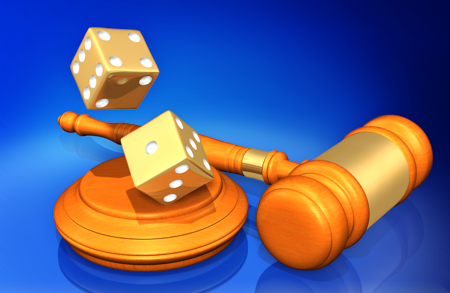
UK: Camelot granted permission to appeal National Lottery licence decision
The Court of Appeal has given permission to Camelot Group and International Game Technology (IGT) to appeal the decision to award the fourth UK National Lottery licence to Allwyn Entertainment.
In march The Gambling Commission named Allwyn as its preferred applicant for the licence, a decision that would bring to an end Camelot’s tenure as the UK’s lottery operator, having ran it since its 1994 inception.
In April, Camelot launched a High Court challenge against the decision, regarding whether the Commission lawfully awarded the licence to Allwyn. This led to the formal issuing of the lottery licence to Allwyn being suspended.
The High Court lifted the suspension in June, but the legal challenge continued, with Camelot and IGT approaching the Court of Appeal.
The Court of Appeal has now granted permission to appeal, with the automatic suspension being brought back into effect, pending the outcome of appeal proceedings. The appeal hearing is likely to take place in September.
“Throughout the litigation process, we have been clear that disrupting the implementation of Allwyn’s plans would present potentially severe consequences for the National Lottery and good causes,” the Gambling Commission said. “It also risks the National Lottery not operating to its full potential at the start of the fourth licence.
“We are, obviously, disappointed with this outcome, but respect the court’s decision. The appeal process will generate challenges for the transition to the fourth licence and further delay to the award of the licence to Allwyn.
“We regret the decision by third parties to bring legal proceedings following the outcome of a highly successful competition for the fourth National Lottery licence, actions which could impact transition to the Fourth Licence and, ultimately, funding for good causes.
“Nevertheless, it remains our priority to ensure a seamless transition between the third and fourth National Lottery licences, so that players can continue to enjoy playing the National Lottery fairly, safely and claim their prizes, and so that the National Lottery continues to deliver for good causes in every corner of the UK.”
Allwyn chairman Justin King expressed the operator’s disappointment, saying:: “It creates the likelihood of further delay as the appeal will not be held until September. It is common ground that this delay will damage the introduction of the benefits the fourth licence brings for good causes.
“As the court ruled, Camelot and IGT must now provide an undertaking for damages by 4pm Friday. We call on them to either ensure that undertaking includes good causes, or instead in the interests of the good causes and the National Lottery, to gracefully accept the ruling of Mrs Justice O’Farrell.
“This would allow the suspension to be lifted and the Gambling Commission to move forward with Awarding the Fourth Licence to Allwyn.”
============================
Ruling extends hotly contested battle for lucrative contract, worth potentially £100bn, to mid-September
Please use the sharing tools found via the share button at the top or side of articles. Copying articles to share with others is a breach of FT.com T&Cs and Copyright Policy. Email
https://www.ft.com/content/5b1f373e-97fd-4b28-801c-a599812c0aad
The UK National Lottery operator Camelot on Thursday won the right to appeal against a High Court ruling that ordered it to begin handing over the licence to rival Allwyn, extending the hotly contested battle for one of the most lucrative government contracts. Lord Justice Coulson granted Camelot permission to appeal against the decision from last month, which concluded that an automatic suspension of the handover process, put in place after Camelot challenged the Gambling Commission’s decision to award Allwyn the 10-year licence, should be lifted. But Coulson’s ruling means the suspension will now remain in place until the week of September 12, when the appeal hearing is expected to be heard. The decision keeps alive Camelot’s hopes of overturning the Gambling Commission’s decision. IGT, Camelot’s technology supplier, is also challenging the decision in court. The Gambling Commission said it was “disappointed” with the outcome of the appeal hearing but stressed that it “respect[s] the court’s decision”. The wait until mid-September would “generate challenges” for the transition of the fourth licence, it added. “We regret the decision by third parties to bring legal proceedings following the outcome of a highly successful competition for the fourth National Lottery licence, actions which could impact transition to the fourth licence and, ultimately, funding for good causes,” the regulator said. Allwyn — Europe’s largest lottery operator with operations spanning the Czech Republic, Italy and Greece — won the bid after pledging to halve ticket prices to £1, double the amount of money generated for good causes and invest heavily in new digital products. But Camelot argues that the Gambling Commission should not have discounted a “risk factor” score to the bids, as it favoured the more ambitious but potentially risky business plan of Allwyn. Estimates suggest the 10-year licence will be worth up to £100bn in sales. On Friday, Camelot gave the court undertakings that it would repay Allwyn and the Gambling Commission if it lost the case. But Justin King, former boss of supermarket J Sainsbury and chair of Allwyn’s bid, called on Camelot to provide undertakings for how it would compensate the National Lottery’s charitable causes’ fund if the transition of the fourth licence was delayed. “It is common ground [between the parties in the case] that this delay will damage the introduction of the benefits the fourth licence brings for good causes,” he said. Camelot welcomed the granting of an appeal, rejecting King’s argument that the National Lottery’s charitable fundraising could be harmed. “The risk to future returns to good causes is at the heart of the matter in this case,” it said, adding that the Gambling Commission’s own bid evaluators had “described Allwyn’s plans to deliver the revenue growth it forecasts as ‘implausible’ and identified an array of risks which could impact returns for good causes”. Camelot generated £1.9bn for good causes from ticket sales in the year to March 31.
https://www.ft.com/content/5b1f373e-97fd-4b28-801c-a599812c0aad